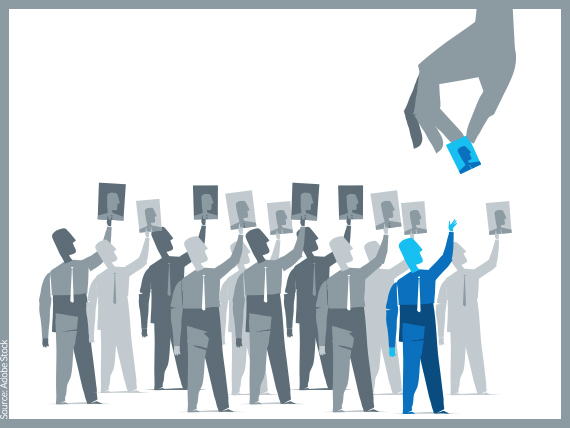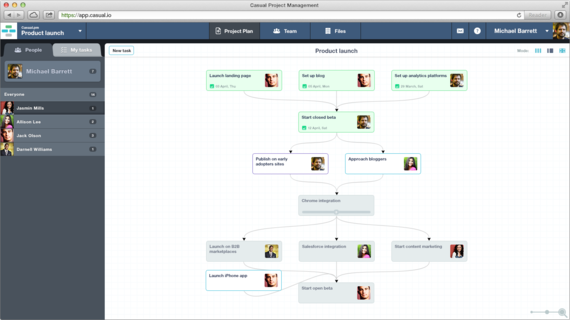Let's imagine that your boss is asking you for a detailed response to a question about a project you're working on. Based on the same premise that we used in Part 1, apply the same reasoning:
- If they ask what do you think - provide a response based on your logic and analysis
- If they ask what do you feel - provide a response based on your emotions and feelings
- If they ask what do you believe - provide a response based on your moral reasoning.
Note that if your superior is asking for your educated opinion (based on logic) but instead asks, "what are your feelings on this?" you can try to clarify the comment by prefacing your reply with "I think we should..." and then provide them with your logic-based reply.
What About Going with Your Gut?
A recent article in Medical Daily indicated that "going with your gut" is intuition coupled with instinct. According to the article, intuition is formed by a collection of beliefs, experiences and memories, and is "more hardwired" into humans; whereas instinct is the body's biological tendency to make one choice over another, relying on a pattern of behavior in response to specific stimuli.
With this understanding, going with your gut is a product based on past experiences - whether good or bad - and in my view, is filed away as knowledge in your belief system. Going with your gut plays on past experiences and analyses filed away in memory; it's what we fall back on when we are thinking a situation through. Because it is not based off of our current emotions - but past experiences - for this reason, I cannot qualify going with your gut as moral reasoning; however, it still plays a significant factor in shaping a response to the "what do you think?" question.
Now, let's consider an example where you go with your gut and then add in your present state of emotion.
Say you want to add a new person to staff and you're looking through their qualifications. You feel they're light on experience for what the job entails, but they appear passionate about the position and have proven to be competent in previous roles, which tugs on your heartstrings to give them a shot.
Your gut is telling you "we've been through this before with a previous employee and it didn't work out. I noticed they're passionate about this position -- which was lacking previously -- but I need someone with experience who can get the job done with little supervision." If you decide to simply go with your gut, then you would move onto the next candidate.
However, if you're taking into account moral reasoning -- utilizing your analysis (your gut) and your emotions, you may think, "you know, they're a little thin here on the experience but they really display a passion for this role and I like this person; I feel good about them! Perhaps I can have some staff provide some training and see where it takes us."
Each case handles the dilemma differently. In the first example (going with your gut) the candidate is immediately dismissed due to a lack of experience. Clearly, you had a previous experience that hindered you from allowing this person to come on board, despite their passion to fill the role.
In the second example, you understood the lack of experience, which is something you may not be able to afford, but are willing to let your emotions guide you in the final decision, as you feel the candidate's passion is genuine and there is potential for them to become the successful employee you've been longing for.
You need to be careful and use good judgement as to how much emotion should play into your decision making. Feelings can sometimes overpower and cloud your rational thought, and in many cases, you may find it most appropriate to provide a response based more on educated thinking than an emotional response.
Becoming a Trusted Advisor
It can be difficult to know when your feelings should play a role in your response to a thought-provoking situation.
As an advisor, if you have a solid relationship with your superior, then perhaps you can also provide them your feelings confidentially and let them respond accordingly. But if you're called on in front of a group of peers about a subject to which you have strong feelings, (e.g., a project, a vendor, another person, etc.) you need to be wise and understand any possible fallout with revealing such emotions so choose wisely in such a situation.
I've learned that providing your beliefs (moral reasoning) while responding to questions tends to show management that you have been careful to think deeply and clearly about the subject at hand, giving them more confidence in your ability to provide solutions to problems within your business. Likewise, asking your team to tell you what they believe will bear similar results, as well as insight as to what they are willing to share with you. This can become extremely useful to gauge who you can truly count on in the assignment of special projects as certain tasks may or may not be in alignment with one employee's moral code or belief system, but not another's.
Ultimately, the hard lesson learned from this exercise is the ability to identify those people whom I can add to my short list of truly trusted advisors and add myself to my superior's list of truly trusted advisors.
References:
http://www.psmag.com/health-and-behavior/identity-is-lost-without-a-moral-compass
http://www.medicaldaily.com/your-gut-feeling-way-more-just-feeling-science-intuition-325338
-- This feed and its contents are the property of The Huffington Post, and use is subject to our terms. It may be used for personal consumption, but may not be distributed on a website.
































